Here's another slide from the master slide deck I will be using for a variety of AI presentations and keynotes in the next few weeks.
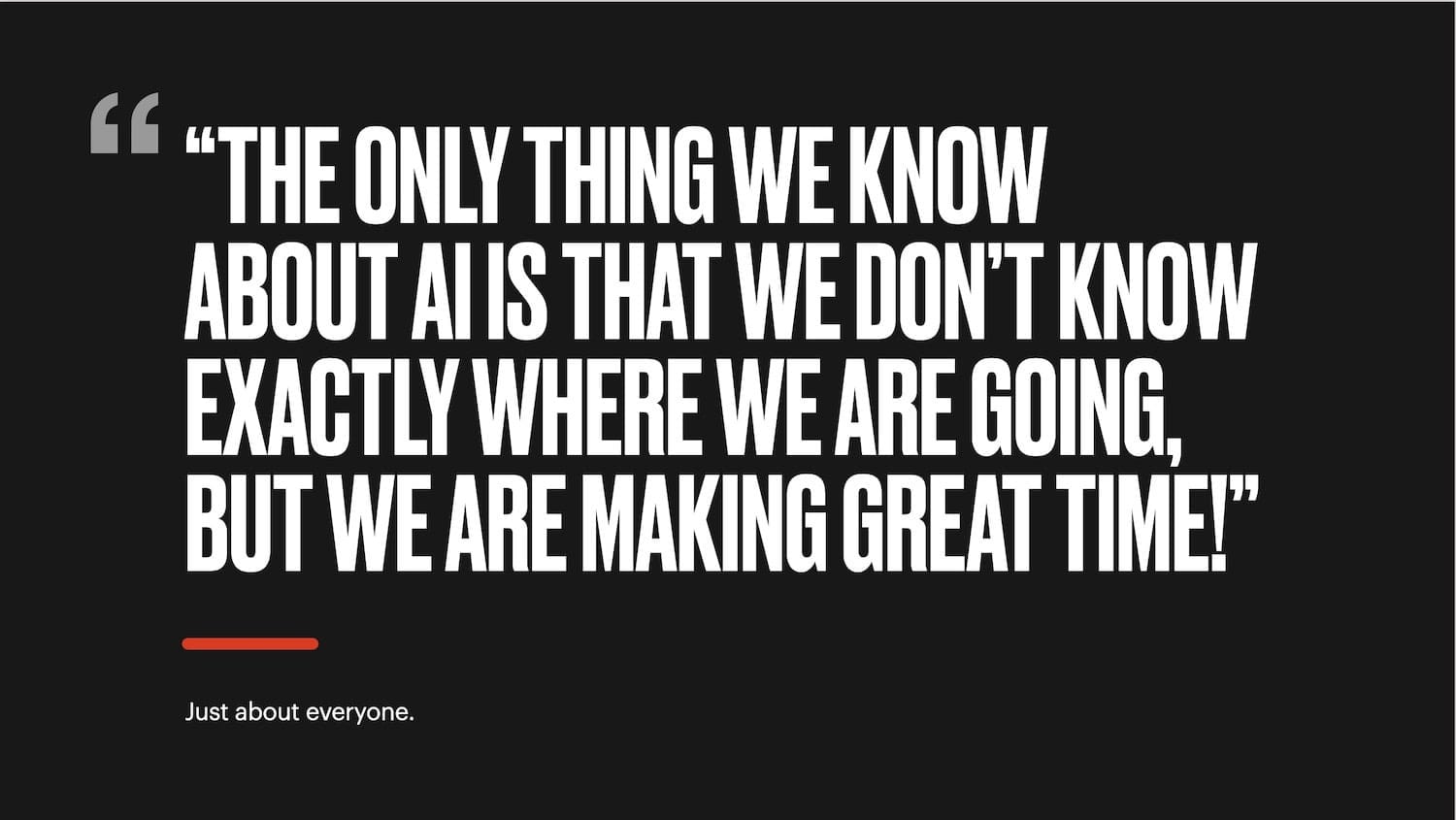
You'll know it as a phrase I use often:
“The only thing we know about AI is that we don’t know exactly where we are going, but we are making great time!”
I have literally pulled down and scanned through thousands of articles from my online research services for anything and everything having to do with AI. If you want to get just a bit of a sense of the type of stuff I read as I prepare, take a look at this PDF. The highlights in yellow are the things that caught my interest.
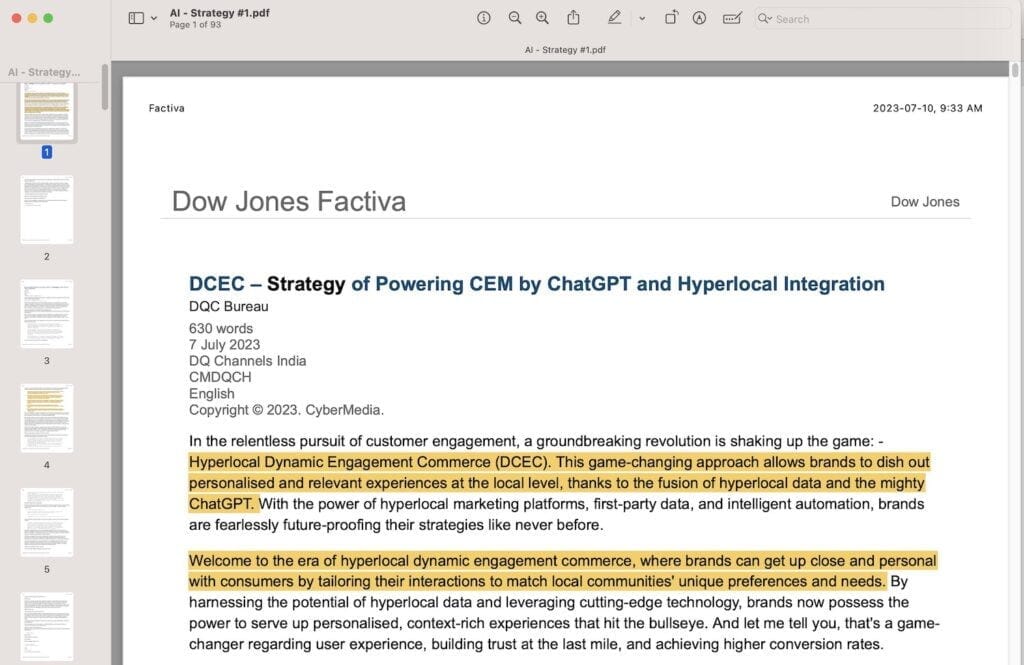
The articles cover news, research, reports, and press releases involving AI from every angle, industry, and perspective. And one thing remains clear - expectations for the role that AI might play are pretty high: this is to be expected for the hype-du-jour. According to Exploding Topics:
- The global AI market is valued at over $136 billion.
- AI industry value is projected to increase by over 13x over the next 7 years.
- The US AI market is forecast to reach $299.64 billion by 2026.
- The AI market is expanding at a CAGR of 38.1% between 2022 to 2030.
- By 2025, as many as 97 million people will work in the AI space.
- AI market size is expected to grow by at least 120% year-over-year.
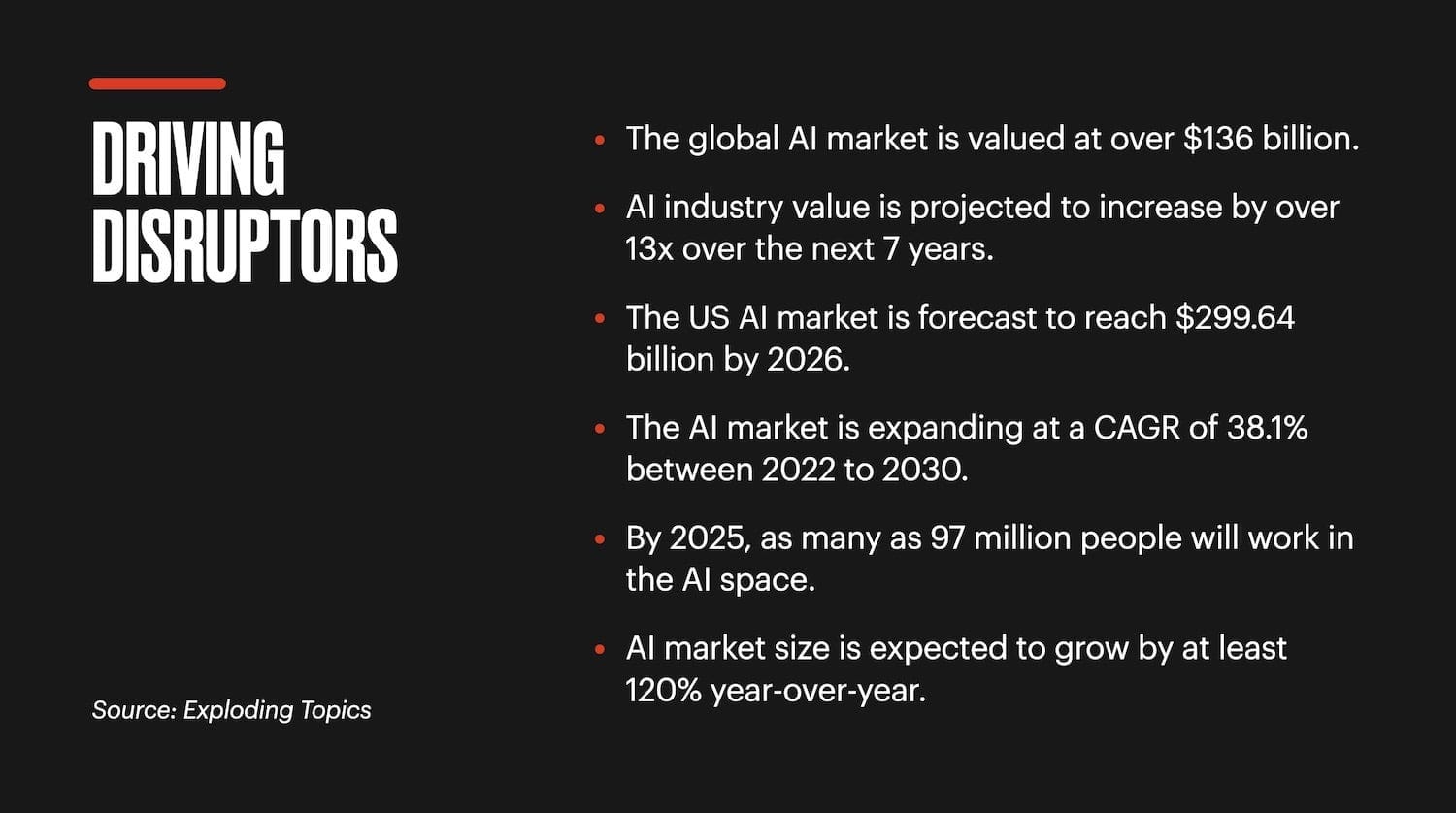
With the incessant focus on the trend, there are big goals and big plans:
- 87% of global organizations believe that AI technologies will give them a competitive edge.
- 9 in 10 organizations back AI to give them a competitive edge over rivals (MIT Sloan)
- Around 4 in 5 companies deem AI to be a top priority in their business strategy (Forbes)
- AI is expected to improve employee productivity by 40% (PWC)
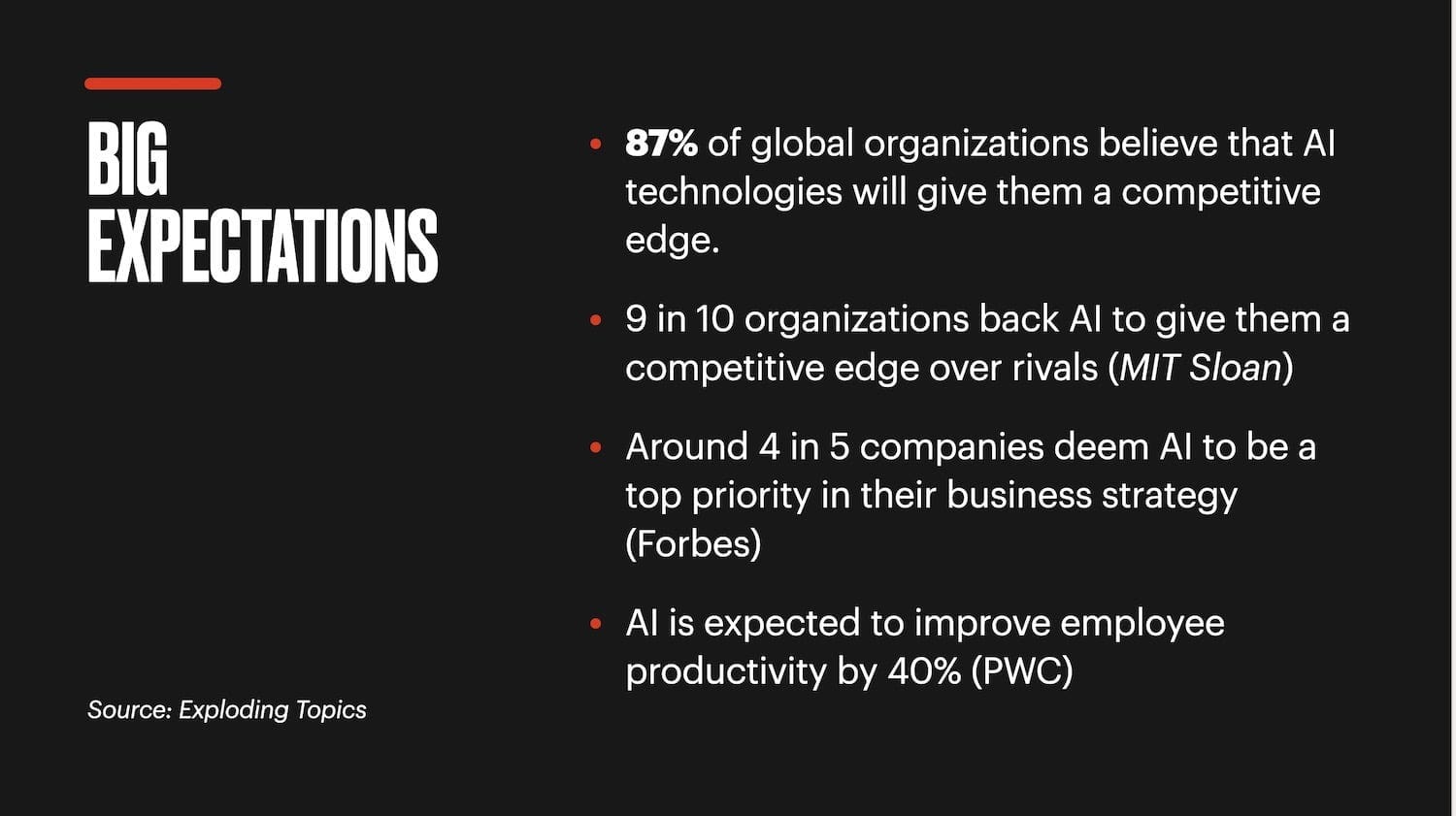
But ask anyone what their specific plans are and you might draw a blank look. Ask them to articulate the steps they might take in the next few months, and they will stumble and mumble. At this point in time, there are grand plans but few actions.
I'm OK with this state of affairs since it echoes my own mindset. When the Internet finally exploded onto the scene in 1993, I and many others knew that it was going to be massively transformative. We couldn't tell people exactly what they needed to be doing but could give them broad brushstrokes of where they would end up. We couldn't tell them exactly the strategies they should pursue - but were pretty darned good at providing them with a vast range of questions that they should be asking themselves.
For me, it all comes back to the essence of innovation: how might I use this technology to run my business better? How might I use it to grow my business? And most important of all, how might it present me with both opportunities and challenges that will involve the transformation of my business? And then, for some, it will be inventing a new business.
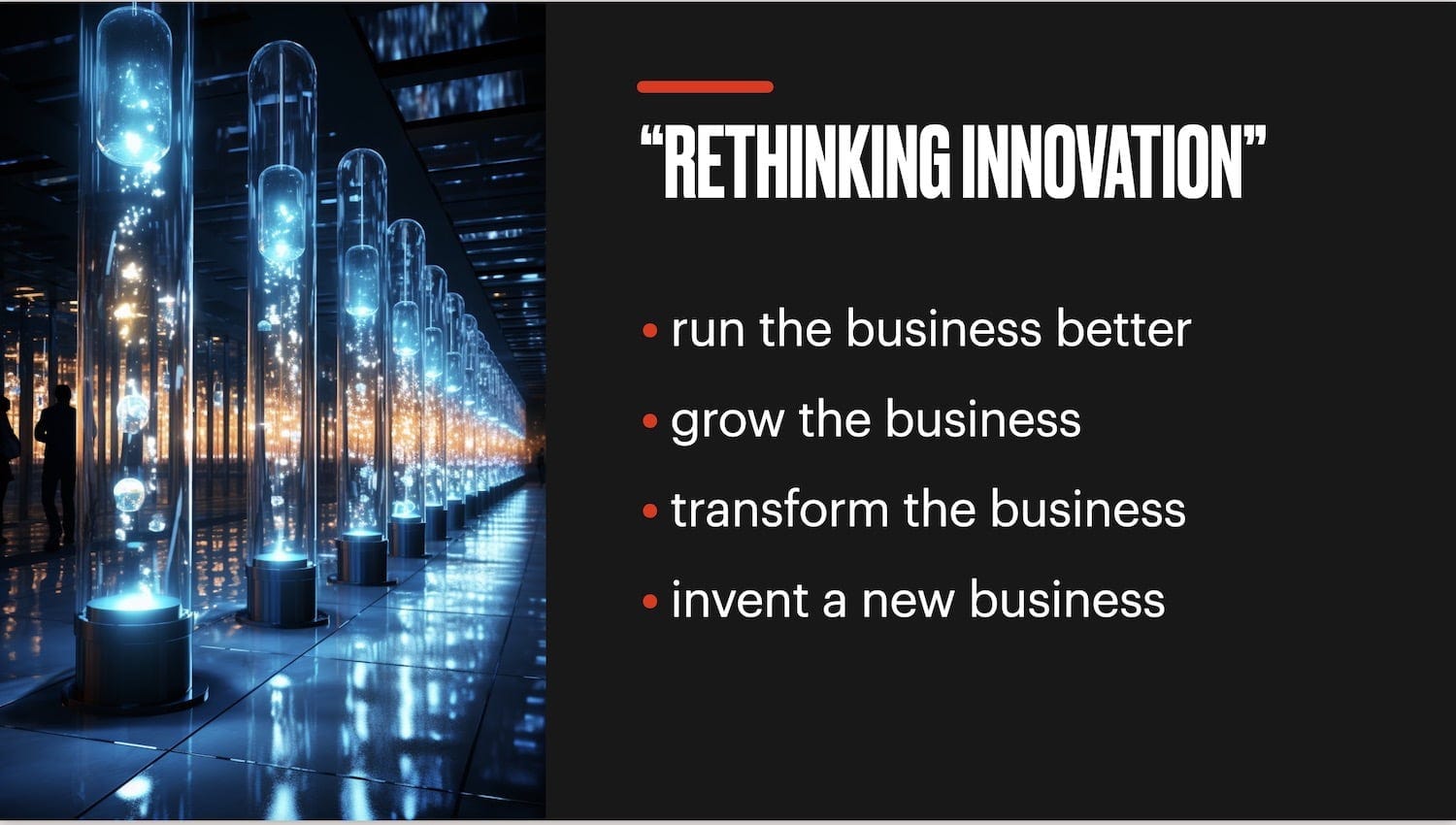
One of the sessions I have this fall will be with the CEOs of over 60 software companies, many of which are of very significant size. I know going in that I won't be able to tell them exactly HOW to implement AI opportunities within their software platforms, but I will be able to provide them guidance on how AI will be redefining the industry they operate within, and the broad brushstrokes of the strategic opportunities that all the various aspects of AI might provide to their platform. In other words, this leads to the first version of this morning's quote:
"I can't always give you answers to your questions. But I can give you the questions that will help lead you to the answers."
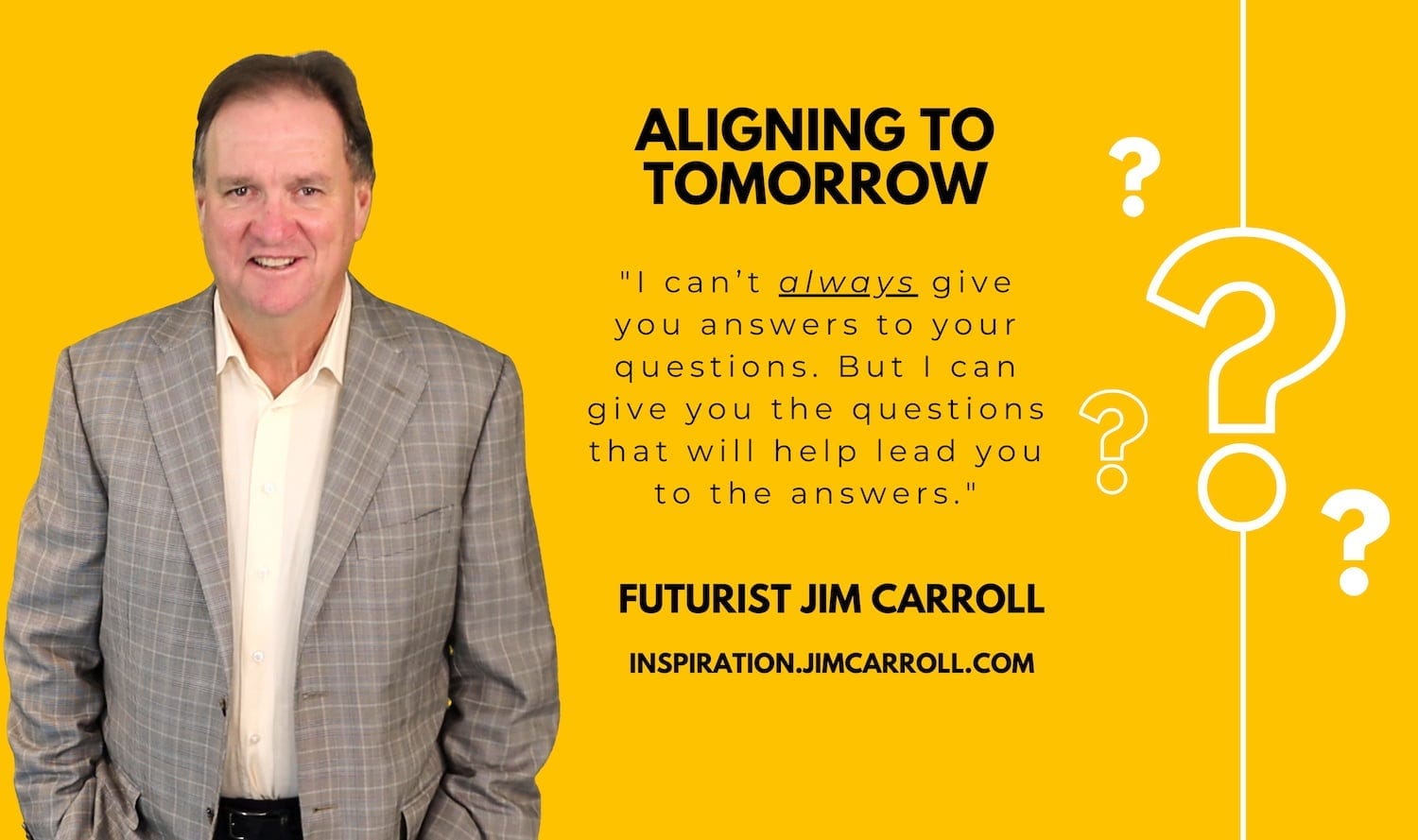
That's becoming the goal of many parts of my presentations.
This is not a cop-out and is not at all unusual - when the concept of e-commerce first came about, there were similar lofty expectations, big goals, and massive visions - but few could articular the actual pathway to get there. Eventually - with the help of the global pandemic - e-commerce became a massive disruptor. AI will follow the same pathway - and perhaps, there will be some major catalyst, like the pandemic was, that will make the opportunity a necessity, not just a strategy.
The bottom line?
"We might not always be able to find answers to our questions. Our goal should be to find the questions that can lead us to the answers."
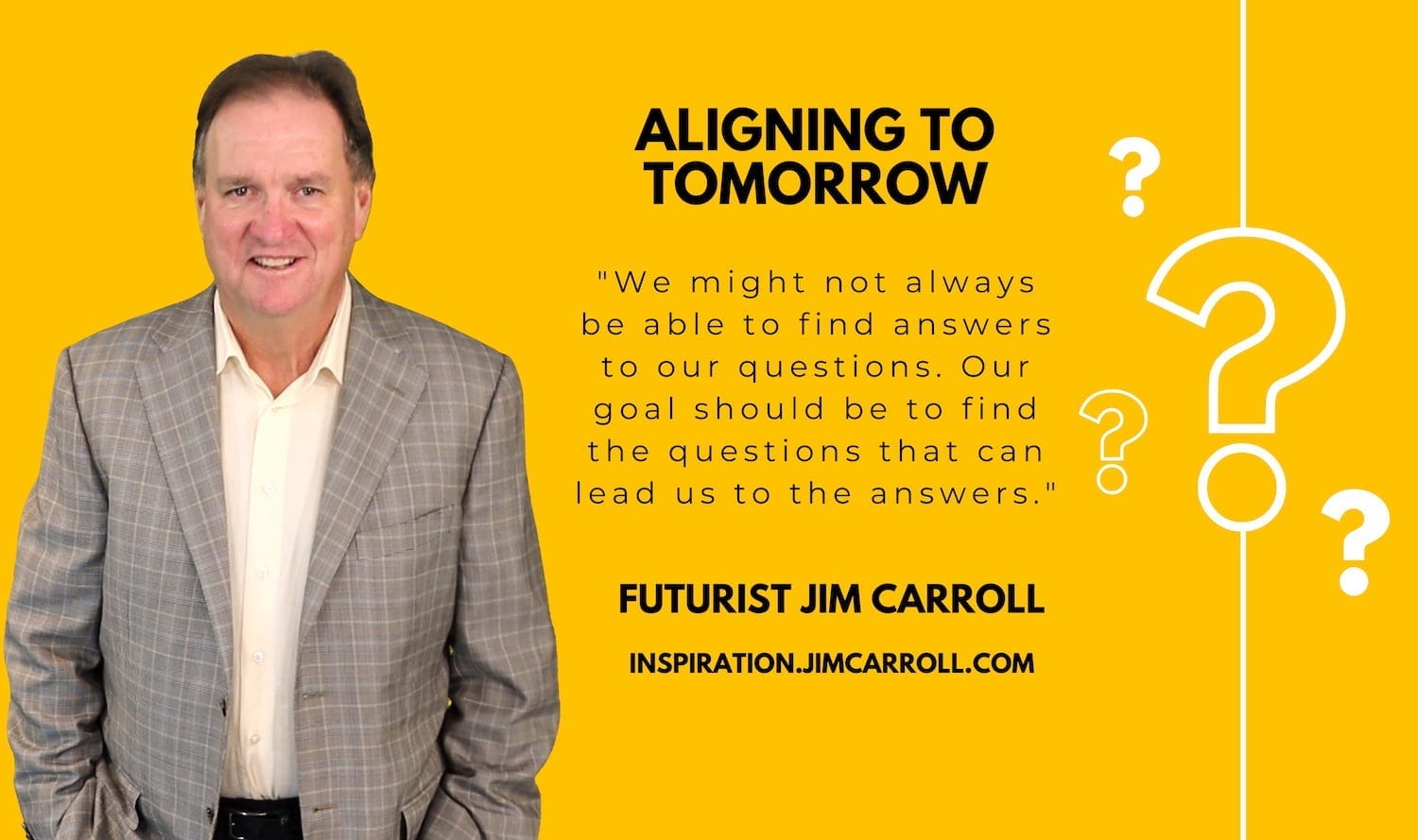
Because with a fast-moving future, getting the right questions is often more important than finding the right answers.
Futurist Jim Carroll always asks a lot of questions.
Thank you for reading Jim Carroll's Daily Inspiration. This post is public so feel free to share it.

